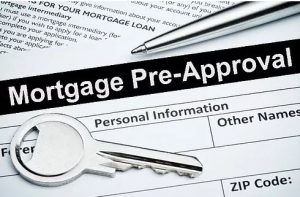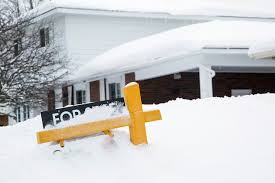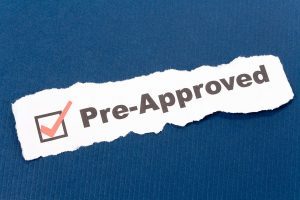
Your First Home. What a THRILLING thing that is to think about!! One of the best parts about our job is helping individuals purchase their first home. We know that the process can seem daunting at first, but we have an in-depth understanding and knowledge of what steps are required to make the process go smoothly. Follow these and you will be turning the key into your new home before you know it.
1. Find a Fantastic Mortgage Broker
Finding a mortgage broker who can help with your pre-approval process can allow you to determine the price point of home you can really afford. Finding a mortgage broker right off the bat can also give you an advantage over working with your bank:
- Mortgage Brokers work for you, not the bank or lender
- They have access to multiple lenders and are not limited to one single product
- They are an expert in the field. They focus on mortgages and mortgages alone!
2. Get Comfortable With The Numbers
There are two numbers that all first-time homebuyers should keep in mind: 39 and 44. These two numbers can help you budget and determine what you can truly afford when looking to purchase a home. Why 39 and 44? Here’s why:
- A maximum of 39% of your total income can go towards your housing costs. This will cover your mortgage payment, property tax payment, heating costs, and strata fees.
- A maximum of 44% of your total income can go towards your housing costs and total debt payments. This will include ALL housing costs and all debt repayments (credit cards, car loans, student loans, etc.)
Now, here are a few other key numbers that can help you in your house hunting:

3. Know What Your Down Payment Needs to Be
You know the numbers, now let’s look at what you need to know about the down payment itself. First, if you have less than 20% down payment your mortgage will be insured and have insurance premiums added to your mortgage. If you are considering putting the minimum down, that would be 5% if the property is worth $500,000 or less. A down payment of 10% is required for any amount over $500,000. Here’s a quick example of what this looks like:
Purchase Price of $600,000
5% of $500,000 $25,000
10% of $100,000 $10,000
Total Down Payment: $35,000
4. Take Advantage of The RRSP Home Buyers Plan
The Canadian government’s Home Buyers’ Plan (HBP) allows for first time home buyers to borrow up to $25,000 from you RRSP for a d own payment, tax-free! You are able to combine this with your partner if you are both first time home buyers you can both access the $25,000 from your RRSP for a combined total of $50,000. Certain qualifications do apply for you to use this plan, we have laid them out here for you to review.
5. Don’t Forget About the Closing Costs!
This is one so many people overlook! Closing costs are something that can add up quickly when you are purchasing a home. Here is an approximate breakdown of the funds you will need:
- Legal Costs: $1000
- Title Insurance: $200
- Appraisal: $350
- Property Transfer Tax: Pending on purchase price
An additional few facts on property tax for you to consider:

This is an approximation of what your closing costs may be, but it is always good to budget for them beforehand.
6. Have your Documents Ready to Roll
Mortgages = paperwork! There are a number of documents that you will need to have to give to your mortgage broker. This will vary depending on your employment situation and where your down payment is coming from, but here is a general list you can follow:
- Most Recent paystub
- Letter of Employment
- NOA’s (2 years)
- T4’s (2 years)
- Down payment verification—up to 3 months of bank statements
- Contract of Purchase and Sale (Your realtor will provide this)
- Property Disclosure Statement (Realtor will provide)
- if you are self-employed you may also have to show:
o T1 Generals
o Articles of Incorporation
o Financial Statements
7. Start Working on Your Credit Score
Yes, your credit score does directly impact your ability to get a mortgage. Lender’s want to see that you can responsibly manage credit and debt repayment before loaning you a large sum of money to purchase a home. Your credit score will be a determining factor in the terms and rate associated with your mortgage.
Just what impacts your credit score? Good question! Here are a few things:
- Late payments will lower your score
- Collections, judgements, consumer proposals, bankruptcy this will lower your score
- Exceeded limits on credit cards
- Ideally, you will be able to show a minimum of 2 active and current trade lines
- The longer your trade line is, the better increase in your score!
- Lenders also like to see a minimum of $2,000 limit on your credit cards.
Understanding and using this knowledge can help make your first home buying experience a great one! Once you have gone through the pre-approval process with a mortgage broker the fun part begins! Upon you receiving your preapproval, you can begin the house hunting. From there, you can put an offer on your dream home (yay!) Once your offer is accepted, we go through the mortgage process with you and then it’s moving day for you!
This is an exciting time for first time homebuyers—we enjoy getting to help our clients go from start to finish and helping them get the keys to their first ever home. If you have questions or are looking to find out just how much you will qualify for you can check out our mortgage calculator OR you can reach out to a Dominion Lending Centres mortgage professional directly!
Contact me for your best mortgage options 705.669.7798 or trina@ndlc.ca
#trinamortgages #mortgages #ndlc #freedomofchoice
#bestmortgageforme #executive #firstimehomebuyer
If you found this information valuable, I only ask that you share with your friends and family.
Copyright DLC







